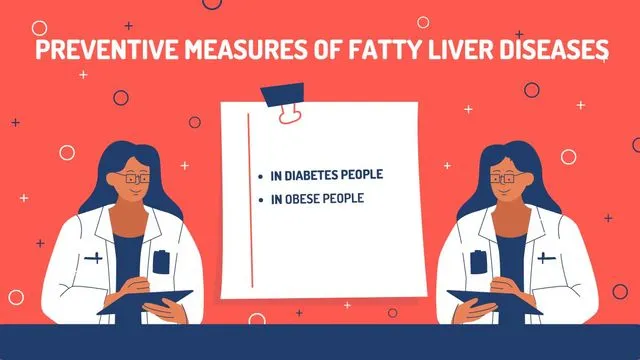- By Priyanka Munshi
- Sat, 04 May 2024 04:33 PM (IST)
- Source:JND
When excessive fat accumulates in liver cells, it leads to the development of fatty liver disease, a condition common in individuals with diabetes and obesity. Elevated blood cholesterol and glucose levels, along with insulin resistance, contribute to this syndrome in these groups. Non-alcoholic fatty liver disease (NAFLD) encompasses a spectrum of liver conditions, ranging from mild fatty liver to more severe forms such as non-alcoholic steatohepatitis (NASH) and cirrhosis. If left untreated, NAFLD can result in liver failure and other serious consequences.
For people with diabetes and obesity, lifestyle changes are crucial to controlling and preventing fatty liver disease. This includes weight loss, improved dietary habits, and increased physical activity. In a conversation with Jagrn English, Dr. Raosaheb Rathod, a consultant gastroenterologist, hepatologist, and therapeutic endoscopist at Medicover Hospitals in Navi Mumbai, discussed fatty liver disease, its causes, complications, and preventive measures.
According to Dr. Raosaheb, there is a growing prevalence of fatty liver disease, with a significant number of individuals being diagnosed with it. Fatty liver, or steatosis, occurs when excess fat is deposited in the liver, comprising more than 5–10 percent of its weight.
What Are The Causes Of Fatty Liver Diseases?
Causes of fatty liver diseases include alcohol consumption, diabetes, obesity, a sedentary lifestyle, genetics, and certain medications.
What Is The Prevalence Of This Condition?
Fatty liver is prevalent among people, particularly those with diabetes and obesity, with a prevalence approximately 27% higher in these groups. It can occur at any age, including childhood, with the highest prevalence observed in the 40–50-year-old age group. It is typically asymptomatic and is often detected incidentally during ultrasound investigations for other health issues.
What Are The Complications Of Fatty Liver Disease?
Progressive fat deposition in the liver can lead to liver cell damage, eventually resulting in liver cirrhosis and liver cancer if left untreated. Despite its potential severity, fatty liver disease is often disregarded due to a lack of awareness about its effects.
What Is The Treatment For Fatty Liver Disease?
Treatment for fatty liver disease may involve medication to manage diabetes and control blood sugar levels. Lifestyle modifications such as exercise, a balanced diet, weight management, reduced alcohol consumption, and smoking cessation are essential. Following expert guidelines can significantly improve quality of life and prevent further complications.
How Can You Prevent fatty Liver Disease?
Preventive measures for fatty liver disease include avoiding alcohol and sedentary lifestyles, strict control of diabetes and high cholesterol, regular exercise, maintaining a healthy body mass index (BMI), and consuming a healthy diet low in carbohydrates and fats.

